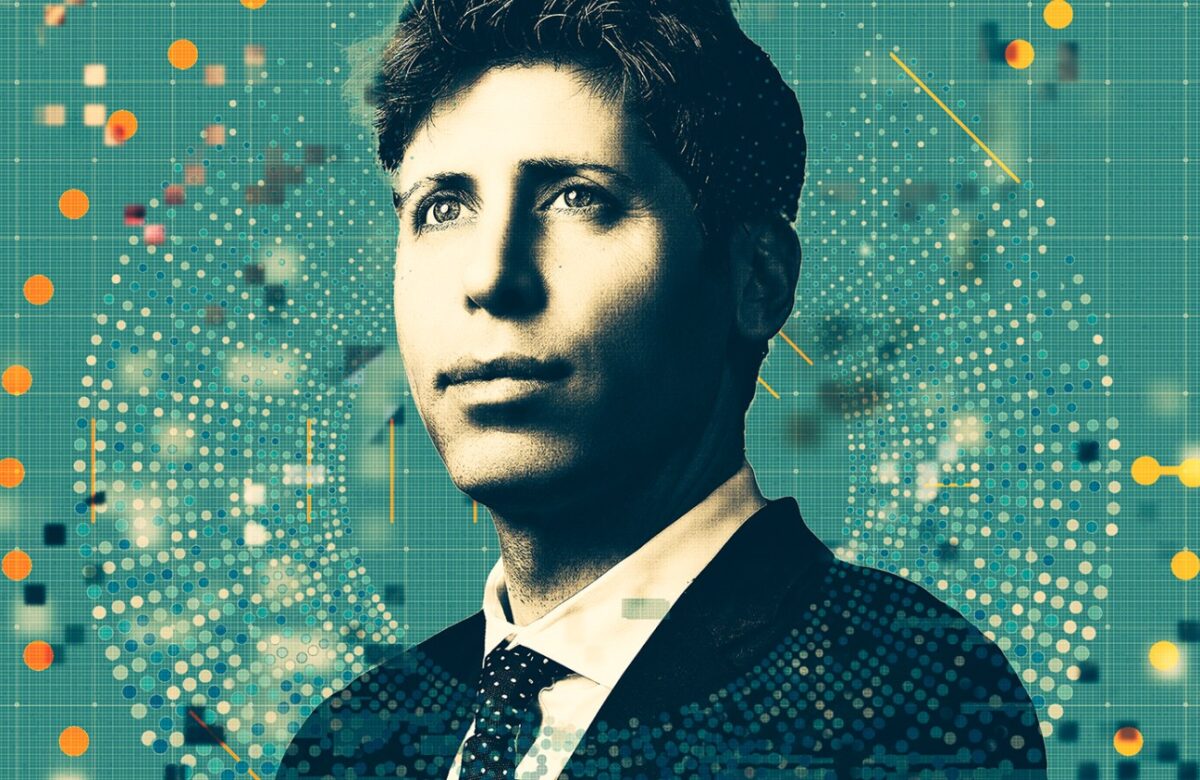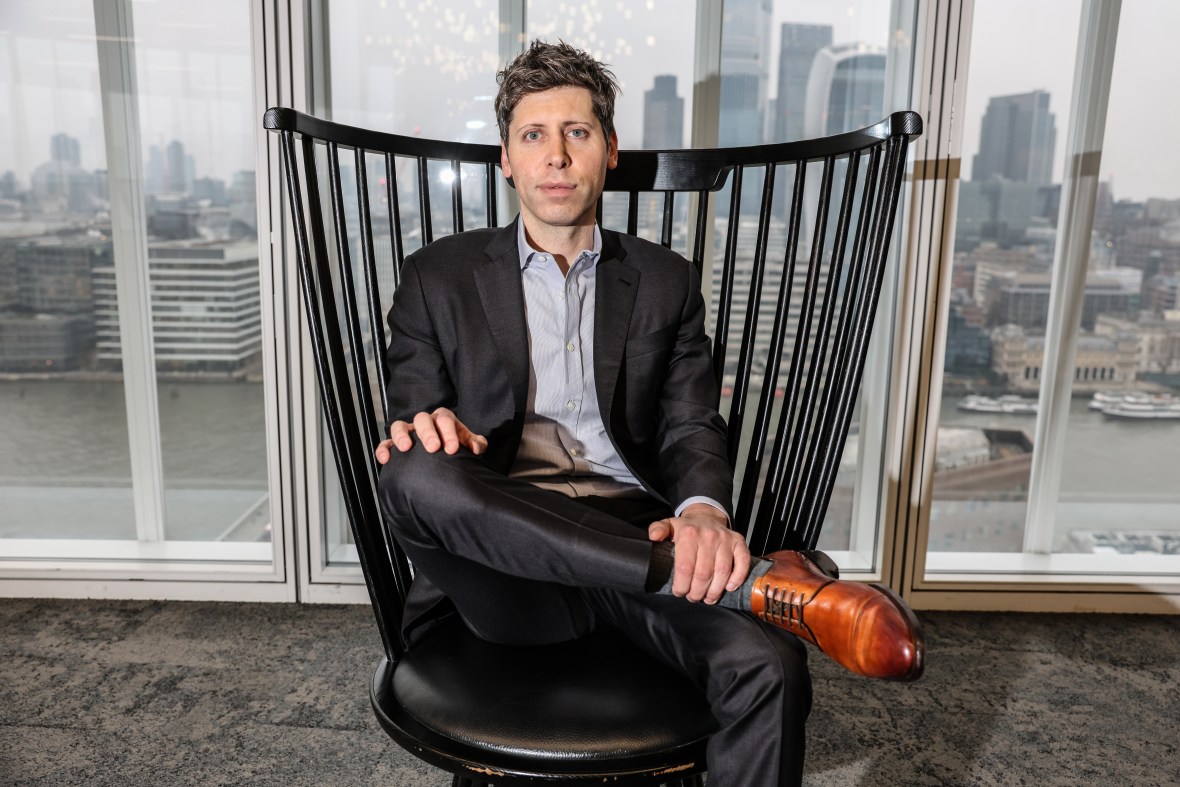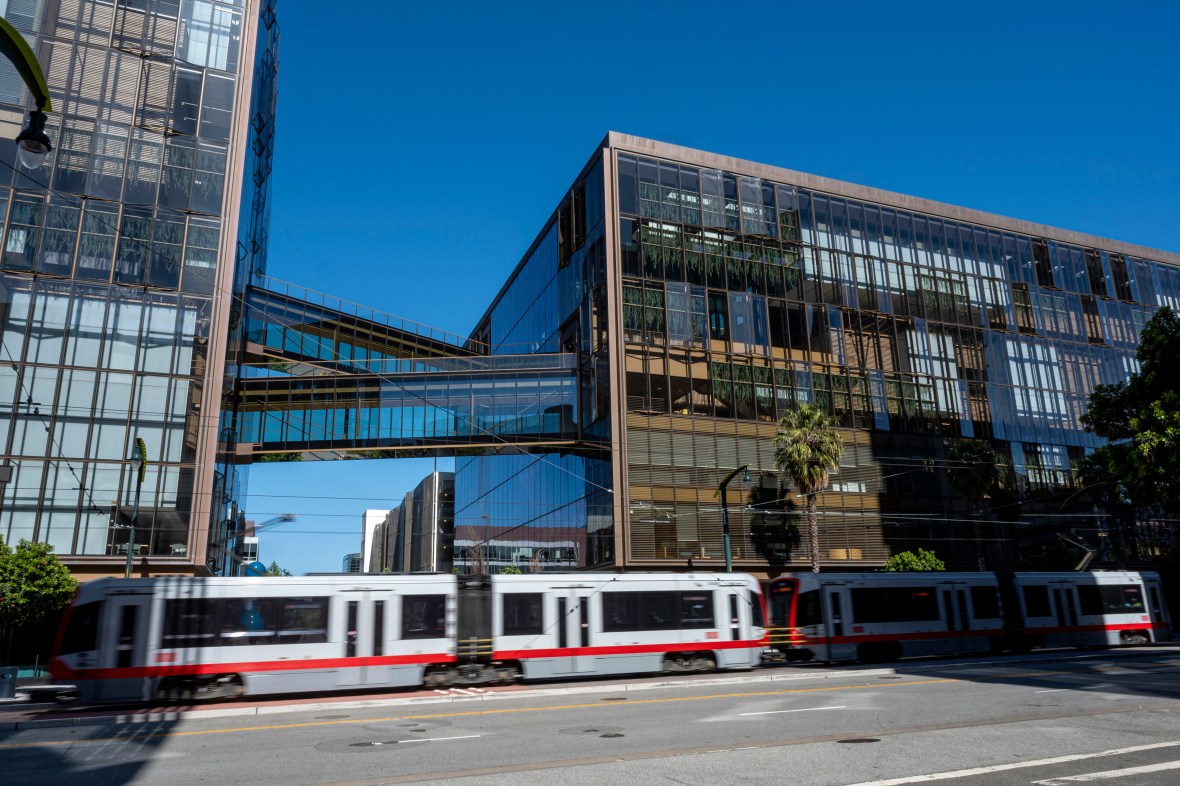
01
Sam Altman does not have an answer to the question that more and more people are asking: as artificial intelligence advances with terrifying speed, what do we tell our children? How do we prepare the next generation for a world where none of them will ever be better than a machine at any cognitive task?
“It’s been this very popular thing throughout history to predict that we’re all going to be working four hours a week or whatever. But we seem to be pretty hard-wired to want to create, to be useful to other people, to sort of do stuff, to like, feel like we’re doing something of significance,” the chief executive of OpenAI said in an exclusive interview last week with The Times Tech Podcast. “I’m not a believer that we’ll just run out of things to do and we’ll have this miserable existence where we sit around and just sort of do drugs and play video games.”
One hears some version of his answer — a shoulder shrug that is at once refreshingly honest and deeply unsettling — from people across the industry, and at his company, as they race to build super-intelligent machines. The Sunday Times recently gained rare access to Altman’s inner circle of executives and coders at the company’s San Francisco headquarters, before he swung through London on the way to last week’s Paris AI Action Summit.

The gathering in the French capital — of leaders, executives and scientists from more than 100 countries — was billed as a chance to finally unite the world on key questions of governance over a technology primed to upend the economy and society. In the end, little was achieved beyond a photo op. Neither America nor Britain even signed a declaration that was remarkable only for how unremarkable and toothless it was.
While politicians fiddle, Altman and co are running as fast as they can to deliver artificial general intelligence (AGI), a term used to describe a system that is better than the best humans at any task, by 2030 — if not earlier. They appear to be driven by a very West Coast optimism: a conviction that they are building a future where diseases will be cured, climate change will be solved and new horizons of possibilities will open, all with the magic of artificial intelligence.
You would miss it if you did not know it was there. OpenAI’s San Francisco headquarters is housed in an unremarkable warehouse in an area full of warehouses , vestiges of the city’s industrial past. There is no sign outside, no skyscraper casting a shadow over the skyline, just a big grey box.

Inside, it is all polished concrete floors, blond wood, a kitchen stocked with sparkling water and coffee, and a profusion of plants bathed in sunshine diffused through frosted windows. In short, it looks like any other start-up, but for the gleaming black Yamaha piano in the main reception area and an avocado chair — a piece of furniture inspired by an early image from Dall-E, OpenAI’s text-to-image generator that, just three years ago, stunned the world but now seems rather passé.
There was a frisson of energy in the air on the day of The Sunday Times’s visit; US tech stocks had gone into freefall after DeepSeek, a previously little-known Chinese company, released a free AI model that was on par with OpenAI’s top model, ChatGPT. The revelation put paid to the notion that America — led by Altman’s company — had opened a big lead on China.
Nick Turley, head of ChatGPT, was unsurprised — mostly. “One trade-off of being first is that you’re going to see people catch up,” he said. But Turley was not dwelling on it because the world, in his view, is about to change again, much like it did when he and his team unleashed ChatGPT in November 2022. “It’s the year of agents, in my opinion,” he added.


